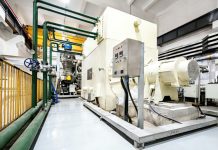
Since the Ministry of Industry and Information Technology first put forward the concept of using special and sophisticated technologies to produce novel and unique products (SSNU) in 2011, embracing the new has been recommended as an important growth strategy for small and medium-sized enterprises.
At the end of 2018, the ministry began to assemble a list of SSNU enterprises that particularly excel, which it dubbed “little giants.” With support from top-level planning and an array of supportive policies, a large number of little giants have since emerged. The first group consisted of only 248 companies. To date, five groups have been selected, with the total number of SSNU enterprises standing at 124,000 and number of little giants now standing at 12,950. The selection of the sixth group is currently underway.
These little giants are mainly involved in high-end manufacturing, in line with the trend of transformation and upgrading of China’s manufacturing industry. Of them, 1,499 specialize in computer, communication and other electronic equipment manufacturing; 1,421 focus on specialized equipment manufacturing; and 1,259 on general equipment manufacturing. Additionally, the clustering of these enterprises is intensifying. Beijing, Shenzhen and Shanghai each have more than 700 little giants. Regional agglomeration is a feature not only of premium resources but also of funds and personnel.
SSNU enterprises are the vanguard in developing new quality productive forces, helping spur the upgrading of industrial chains. According to statistics released by the China Center for Information Industry Development and the State Information Center, the innovation index of SSNU enterprises hit a historical high in March, up 40.4 percent over the same period last year.
New quality productive forces are advanced productive forces where innovation plays a leading role. According to data from the Institute of Innovation and Development of Small and Medium-Sized Enterprises, more than 50 percent of little giants have invested more than 10 million yuan ($1.38 million) in research and development, and more than 80 percent rank first in their niche industries in their home provinces.
Advanced manufacturing is an important feature of new quality productive forces. More than 60 percent of those little giants work in basic industries. Over 70 percent of them have worked in their industries for more than 10 years, becoming important players in the areas where they specialize. Through their own technological innovation, they can help drive the overall upgrading of upstream and downstream enterprises, contributing to the improvement of China’s overall industrial efficiency.
The development of new quality productive forces also needs the support of other industries such as finance. The principal purpose of opening the Beijing Stock Exchange in September 2021 was to provide more targeted financial services to SSNU enterprises. This has prompted China’s financial industry to refocus on the task of serving the real economy, spawning a series of new financial products including dedicated loans for SSNU enterprises. The demand from these companies reflects the urgent needs of industries as a whole and the direction where the financial industry is headed, which can guide supportive industries to better shore up the development of new quality productive forces.
SSNU firms have emerged as pioneers in the advancement of new quality productive forces. China needs to offer more support to these enterprises to maximize their role in taking the lead in innovation, promoting transformation of industrial chains, and helping with the upgrading of supporting industries. –The Daily Mail-Beijing Review news exchange item
The author is a member of the Expert Committee for Information and Communication Economy, Ministry of Industry and Information Technology




